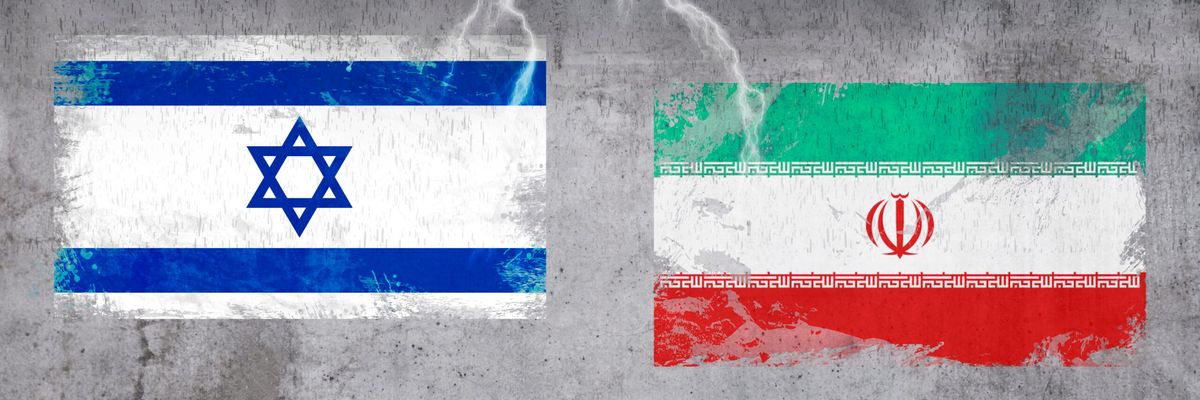Among the flurry of comments on the China-facilitated normalization deal between Saudi Arabia and Iran, one stood out as particularly intriguing: former chief of the Israeli intelligence agency Mossad Efraim Halevy cautiously suggested that the time may be ripe for Israel to put out feelers to Tehran. The aim would be to explore whether some sort of detente with Israel might be possible.
Given the current state of an extreme hostility between Tel Aviv and Tehran, such a suggestion, at first glance, may sound as too far-fetched or even mere wishful thinking. Yet responsible statecraft consists of identifying and exploring early diplomatic opportunities, and that is why Halevy’s words need to be taken with due consideration.
It is commonly assumed that the Islamic Republic’s ideological animosity towards Israel is so entrenched that any expectation of moderating it is vain. It is true that for a regime fast losing its Islamist credibility — the lack of enforcement of compulsory hijab being a recent visible expression of that trend — enduring enmity toward Israel is one of the few remaining markers of its identity. At least as long as Supreme Leader Ayatollah Ali Khamenei is in charge, any talk of détente with Israel would likely prove premature.
Yet, historical record suggests that ideology alone does not explain the intensity of enmity between the two countries. Recent revelations published in The New York Times shed additional light on what was long suspected to be a sordid scheme to help elect Ronald Reagan over Jimmy Carter in 1980. The scheme allegedly consisted in convincing the Iranians to defer the release of the American hostages they held until after the election, in exchange for a “better deal” the Iranians could get from the Republican.
That “better deal,” in what foreshadowed the Iran-contra scandal, involved the delivery of weapons to Iran in its war with Iraq — through Israel. It made sense for Israel to help Iran as Saddam Hussein’s Arab nationalist regime was seen as a far bigger threat. And the Islamic Republic had no qualms in accepting such help as it fought for its survival. Of note, these transactions happened in the 1980s when Iran was at the height of its revolutionary zeal. Revolutionary fervor has since abated considerably, to say the least.
The geopolitical competition, with both Israel and Iran seeking a pre-eminent position in the Middle East, appears, then, to be a more important factor than ideology.
With the demise of the most plausible Arab challengers, following the peace treaty with Egypt, the destruction of Saddam’s Iraq and the crippling of the Assad dynasty’s Syria, Iran emerged as the most potent regional challenger to Israel. Its leaders regularly made statements incompatible with international law, such as denying Israel’s right to exist. Yet it’s not that ideology per se that is a threat to Israel, but rather Tehran’s ability to couple it with considerable power projection, through its indigenous military capabilities (mainly drones and missiles) and a network of regional proxies and allies, such as the Shiite Lebanese party cum militia Hezbollah.
Iran, on the other hand, is convinced that Israel is seeking its destabilization and eventual disintegration through covert war, including acts of sabotage and assassinations, and support for regional actors with declared irredentist claims against Iran, such as the Republic of Azerbaijan. Iran also sees Israel as an actor determined to undermine any tentative steps towards the normalization of Iran’s ties with the West. Tel Aviv’s loud opposition to both the 2015 nuclear accord known as JCPOA and efforts to revive it under the Biden administration give credence to such a view.
What accounted for Israel’s moves in the nuclear context were not so much the flaws in the JCPOA — in fact, many Israeli security experts found the agreement to be in Israel’s interest — as the fear that Iran will reap the benefits of the deal without changing its policies towards Israel prior to it. While Israel’s fears may be understandable, acting solely upon them proved self-defeating — the demise of the JCPOA and previous attempts of re-engagement with the West (as during the Rafsanjani and Khatami administrations) led only to the consolidation of hardline forces in Tehran and the marginalization of figures like Khatami and Hassan Rouhani both of whom pursued policies that, if given a chance, might have led to lower tensions with Israel.
This potent mix of ideology and power politics presents a formidable barrier to any attempt to de-escalate the conflict. Consider the following: the deal with Saudi Arabia reportedly entailed Iran pledging to reduce its support for the Ansarullah (Houthi movement) in Yemen. Any prospective deal with Israel would have to similarly address the issue of Hezbollah; yet Iran’s ties with this group are incomparably deeper than with the Houthis.
Yet despite these challenges, it would clearly be in both sides’ interests to cool the tensions. From Israel’s perspective, the waning power of the U.S. in the Middle East, Washington’s obvious reluctance to wage war on Iran, the growing role of China as evidenced in its brokering of the Saudi-Iran deal all require a rethink of its regional policies. Growing polarization in Israel itself and the perennially unresolved Palestinian question are immediate threats to Israel’s survival as a secure, democratic state. Israel needs time and external calm to concentrate on solving its own internal contradictions.
Likewise, for Iran, a state of permanent shadow war with Israel is no longer tenable. While a détente is highly unlikely on Khamenei’s watch, his successors will have to deal with declining living standards, deepening environmental and infrastructure degradation, and discontent among broad segments of the population. Dialing down enmity with Israel, while not necessarily entailing diplomatic recognition, would provide Iran with some breathing space. It would also help re-establish relations with at least the EU, and potentially the U.S. too, sources of much-needed foreign investment and technologies.
It may seem paradoxical considering the current state of affairs, but an Iran-Israel deal would also be easier to achieve than meets the eye. The two countries share no border, and there is no ethnic or religious conflict between them. The Jewish community in Iran is the largest in the Middle East outside Israel, and there is still a considerable reservoir of good will towards the Iranian people in Israel, a testament to both the numerous Iranian Jewish community and lingering memories from the Shah’s times when relations between the two countries were a lot warmer.
Backchannels will need to be activated for any probe into a possibility of detente. As with the JCPOA and the recent Saudi-Iran deal, Oman may prove instrumental. The sultanate has Iran’s trust. It has not joined the Abraham Accords yet it also enjoys friendly relations with Israel — Prime Minister Binyamin Netanyahu visited Muscat in 2018. While Oman may contribute its diplomatic savvy and footwork, China could further consolidate its convening power following the Saudi-Iran deal by doing the unthinkable — bringing Israel and Iran to the table.
The odds of any détente occurring between Israel and Iran are still negligible at this point. Yet peace requires bold, creative, out of box thinking and action. That is why Efraim Halevy’s daring suggestion deserves a serious look.
















